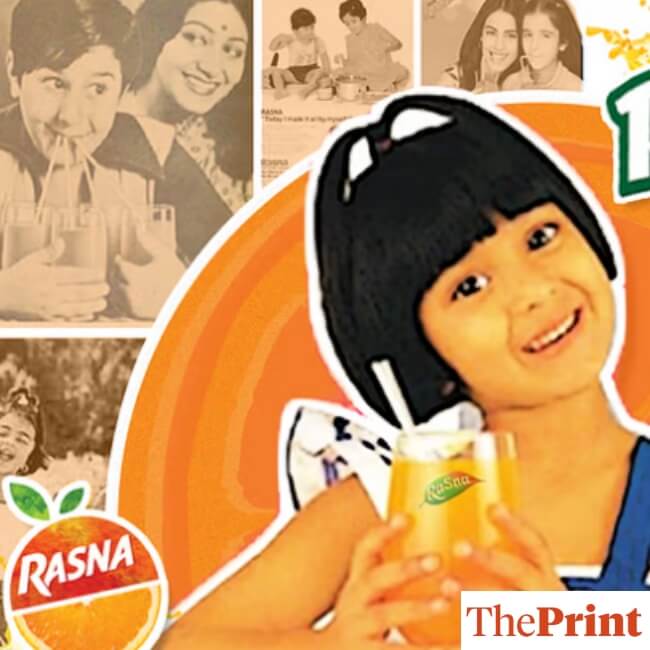
The Rasna girl who stole hearts one ’80s ad at a time
The “dal chawal of India’s beverage basket” is how Rasna’s chairman and MD, Piruz Khambhatta, describes the iconic orange drink concentrate. Although an odd analogy, Khambhatta is not wrong.
When Ahmedabad-based brand, Rasna, hit stores in the early 1980s, it instantly took off and became the go-to welcome drink in Indian homes, not least because of its promise to yield 32 glasses from a single pack. “This was before Coca-Cola and Pepsi entered the soft drink market,” explains Khambhatta, reminiscing about the days when every Indian child yearned for a cold glass of Rasna after playing outside in the hot sun.
Before the turn of the century, the drink was synonymous with the summer season. Now, surrounded by competing global brands, it has multiple flavours other than the original orange, including mango, cola and others, and has diversified into chocolatey snacks and even condiments like honey.
But perhaps what has, for decades, stuck with Indians more than the drink is the sing-song tag line “I love you, Rasna” that was pronounced with equal parts adoration and adorableness by child actor Ankita Jhaveri, now a well-known name in South Indian cinema.
She began playing the Rasna girl in one of the brand’s earliest ads, aired on Doordarshan. “Many people ask us why we chose a little girl rather than a little boy as our brand’s mascot. The truth is, Rasna sounds very much like a girl’s name and it seemed fitting,” Khambatta tells ThePrint. The brand was initially called Jaffe but we went with Rasna for its pan-India launch in 1979. “Jaffe was too European,” remarks Khambhatta. “Our ad agency at the time, O&M, suggested we go with something more Indian-sounding.”
Khambhatta recalls that the ad came out in 1985 or ’86, during which time his father, Areez, was in charge of the company’s operations. Produced by the Mudra Group, who also made the unforgettable Dhara ad, the commercial was short and sweet. It clung to themes of simplicity and innocence and communicated that the product was something both kids and parents could enjoy.